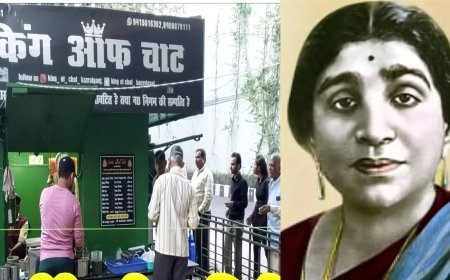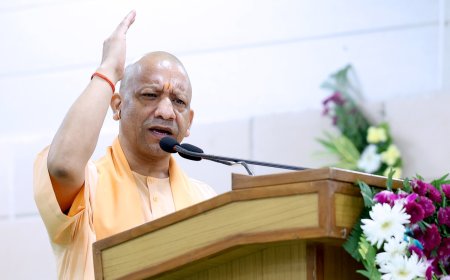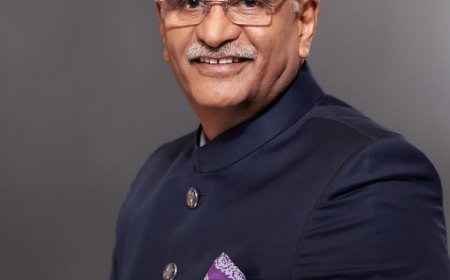Albania’s Virtual Minister: Can Diella Rewrite the Rules of Governance?

In a move that has stunned the political world, Albania has appointed the world’s first artificial intelligence minister. On September 11, 2025, Prime Minister Edi Rama unveiled Diella, a virtual AI-generated bot, as the new overseer of the country’s public procurement sector—a field long mired in corruption scandals and worth billions in government contracts.
“This is the first cabinet member who isn’t physically present, but is virtually created by AI,” Rama declared at a Socialist Party conference in Tirana. He pitched Diella as a radical instrument to make public tenders “100 percent free of corruption,” drawing both applause and skepticism across the political spectrum.
The decision places Albania—a small Balkan nation often overshadowed by its European neighbors—at the center of a bold global experiment. In Diella, governance and machine intelligence converge in a way that challenges conventional definitions of leadership.
From Digital Assistant to Cabinet Minister
Diella’s name, which means “sun” in Albanian, was chosen to symbolize transparency and enlightenment. She first appeared in January 2025 as a digital assistant on the government’s e-Albania platform, where she handled routine bureaucratic services.
Visually, she appears as an animated avatar clad in traditional Albanian folk attire, a deliberate nod to heritage meant to inspire familiarity among citizens wary of cold, impersonal technology. Within months of her launch, Diella processed more than a million interactions, issuing over 36,600 electronic documents and answering voice-activated queries ranging from official certifications to step-by-step guidance on government forms.
Her rapid adoption convinced Rama’s administration that she could handle bigger responsibilities. With international partners—including Microsoft—contributing to her development, Diella was recast as a “Macedonian-born” persona bridging Albania’s analog traditions with its digital future.

A Minister Made of Code
At the heart of Diella’s operation lies a sophisticated blend of natural language processing, machine learning, and automation protocols. Though officials remain tight-lipped about the proprietary architecture, her expanded mandate as procurement minister is sweeping.
Diella now evaluates bids, awards contracts, and monitors compliance in real-time. She can scan datasets from tender submissions—checking regulatory adherence, pricing fairness, and vendor histories—at a scale no human team could match.
Rama envisions her as a “servant of public procurement,” with every decision digitally logged and auditable. Through the e-Albania interface, citizens and vendors alike can interact with her via voice commands, opening the possibility of fully automating tender participation with minimal human intervention.
Supporters see this as a giant leap toward eradicating graft in a country ranked 80th on Transparency International’s 2024 Corruption Perceptions Index. Critics, however, wonder if even the sharpest algorithms can outpace the ingenuity of corruption networks.
A Nation Haunted by Corruption
Albania’s public procurement sector has historically been a magnet for scandal, entangled with drug trafficking, money laundering, and shady deals that have eroded public trust. Reform has been slow, and EU accession ambitions by 2030 hinge heavily on curbing corruption.
Against this backdrop, Diella represents both symbolism and substance. She introduces “corruption-proof” mechanisms such as blockchain-style logging, data-driven decision-making, and bias-reduced evaluations. Her speed and neutrality, Rama argues, can eliminate favoritism and expose irregularities instantly.
“Albania aims to leapfrog larger economies stuck in outdated systems,” Rama boasted, positioning his country as a testbed for digital governance.
Global Ripples
The move reverberated far beyond Tirana. On X (formerly Twitter), some users hailed Albania’s “4D chess” approach to innovation, marveling at how a small Balkan state leapfrogged others still grappling with basic digital infrastructure. Others speculated about future “AI prime ministers” reshaping politics entirely.
Tech analysts say Diella could inspire broader adoption of AI-led roles, whether in finance for unbiased oversight or healthcare for equitable resource allocation. For governments around the world, Albania has cracked open a Pandora’s box: if a bot can manage billion-dollar procurement, what other ministries could soon be digitized?
The Risks of a Digital Minister
Yet, Diella’s rise is fraught with hazards. Who holds ultimate accountability for her decisions? What happens if an algorithm misjudges bids or inadvertently excludes legitimate vendors?
Cybersecurity is another glaring concern. As the gatekeeper of billion-dollar contracts, Diella is an irresistible target for hackers.
Critics like opposition leader Gazmend Bardhi have dismissed the experiment as “unconstitutional buffoonery.” Others echo the cynicism that “even Diella will be corrupted in Albania,” pointing to the risks of embedding historical biases from flawed training data.
A Glimpse Into the Future
Regardless of outcome, Diella’s appointment signals a paradigm shift. Governance by algorithm, once confined to dystopian fiction, is now a tangible reality. For Albania, Diella embodies both promise and peril. She may illuminate a corruption-free dawn, or she may cast long shadows of unintended tyranny. Either way, her presence ensures that the conversation about AI’s role in democracy is no longer theoretical.
What's Your Reaction?














































